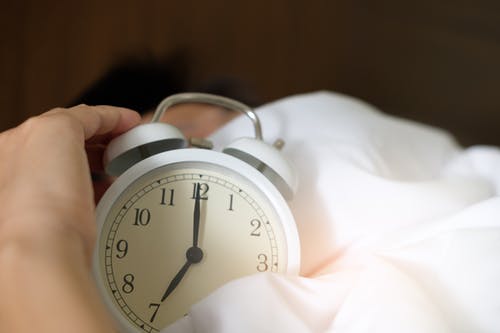Creating and staying on a healthy sleep schedule is more important than you probably think. Not only does maintaining a regular sleep schedule keep you from feeling tired throughout the day, but it also helps keep your mind clear and focused. Check out these tips to get your sleep schedule on track.
Stop Taking Sleep Aids
Sleeping pills, both over-the-counter and prescription, may help you get to sleep short-term, but your body can become dependent on them. This means when you don’t take the sleep aid before bed, you might not be able to fall asleep and, as your tolerance to the medication increases, you’ll have to take more of it for it to work. Of course, with some sleep aids — like Ambien, for example — quitting cold turkey is also a bad idea. If you need help with Ambien withdrawal as you discontinue the medication, ask your doctor to provide you with a list of resources.
Get Into a Routine
One of the best things you can do to improve the amount and quality of sleep you get is to start and maintain a nightly routine. To get yourself into a good nightly routine, start winding down each night about an hour before you want to actually go to sleep. You should have everything completed and be ready to get into bed at your desired bedtime. Then, when that time rolls around, go to bed — and stay in bed, even if you have trouble falling asleep.
Eventually, your body will get used to this routine and it will become easier and easier to stick to. If you have trouble getting your body to relax, try doing yoga before bed. Also, it’s important to keep in mind, adults need between seven and nine hours of sleep each night, so you need to plan to go to bed at a time that ensures you get enough rest.
Wake Up At the Same Time Each Day
When you’re training your body to get used to a set sleep schedule, it becomes a lot easier if you make a habit of getting up and out of bed at the same time each day. When you don’t sleep in and don’t nap, it will become a lot easier to go to sleep at your newly set bedtime. Also, you don’t want to sleep over nine hours regularly because often, oversleeping makes you feel more tired than you were before.
Make Your Bedroom a Tranquil, Relaxing Place
If you have trouble sleeping, it could be because your bedroom isn’t really a relaxing place. You don’t have to completely redecorate it to make it one though. Instead, reduce the amount of blue light in the room by turning off the TV and any other electronics. Also, it’s important to make sure your bedroom is clean, organized, and arranged in a way that minimizes light and noise as much as possible.
Adjust Your Bedroom Temperature
It’s really hard to get a good night’s sleep when it’s too hot in your bedroom. In fact, for many people, the temperature of their bedroom affects their sleep quality more than external noise. Of course, it’s important to adjust the temperature in your home to your preferences but, for many people, setting the thermostat at 70 degrees Fahrenheit at night keeps them comfortable all night long. If you find yourself waking up because you’re too hot or too cold, keep adjusting the temperature until you find a setting that keeps you cool and comfortable.
While getting yourself on a good sleep schedule may take some trial and error, you’ll be glad you did it in the long run. Once your body adjusts to your new sleep schedule, you’ll find that you have more energy throughout the day and you no longer have to deal with brain fog settling in by mid-afternoon.


